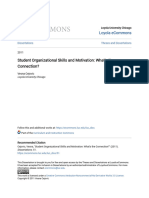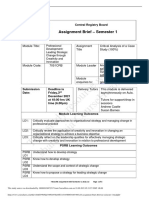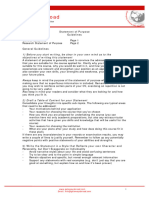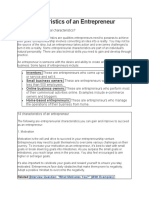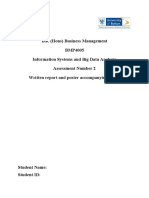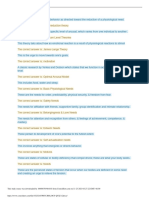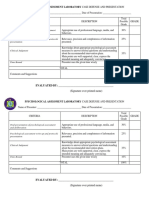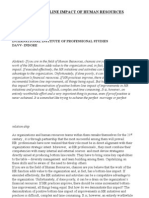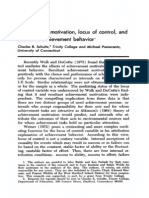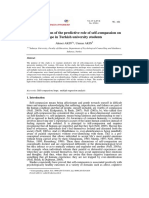100% found this document useful (1 vote)
191 views3 pagesSELF ASSIGNMENT FIRST - Revised2
Self-motivation plays a pivotal role in students' academic success by enabling them to set goals, overcome challenges, manage time effectively, and take responsibility for their own learning. The document explores how self-motivation allows students to set clear academic goals, persevere through difficulties, prioritize their studies, and engage intrinsically with their education. It also discusses how higher education institutions support self-motivation by providing resources and opportunities for independent learning.
Uploaded by
Ferriard LupiyaCopyright
© © All Rights Reserved
We take content rights seriously. If you suspect this is your content, claim it here.
Available Formats
Download as DOCX, PDF, TXT or read online on Scribd
100% found this document useful (1 vote)
191 views3 pagesSELF ASSIGNMENT FIRST - Revised2
Self-motivation plays a pivotal role in students' academic success by enabling them to set goals, overcome challenges, manage time effectively, and take responsibility for their own learning. The document explores how self-motivation allows students to set clear academic goals, persevere through difficulties, prioritize their studies, and engage intrinsically with their education. It also discusses how higher education institutions support self-motivation by providing resources and opportunities for independent learning.
Uploaded by
Ferriard LupiyaCopyright
© © All Rights Reserved
We take content rights seriously. If you suspect this is your content, claim it here.
Available Formats
Download as DOCX, PDF, TXT or read online on Scribd
/ 3



